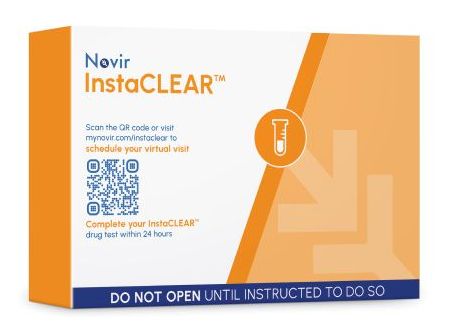In a DOT drug testing program, the end of each quarter becomes a hectic time. This happens because most of our DOT clients follow FMCSA regulations. The FMCSA requires employers to ensure that each selected individual undergoes random testing within the designated period. At InOut Labs, we conduct DOT drug and alcohol tests for employers who must comply with U.S. Department of Transportation regulations. This article explains refusals to test and why employers must report them.
The FMCSA Regulates DOT Testing
The FMCSA strictly regulates DOT testing, ensuring that every covered employee undergoes random testing when selected. Each year, FMCSA mandates that 50% of all drivers receive a random drug test and 10% undergo a random breath alcohol test. To meet these compliance requirements, smaller employers and owner-operators participate in a consortium, a shared pool of drivers from multiple companies. As long as the consortium meets the 50%/10% rule, all members remain compliant.
Congress established the FMCSA within the U.S. DOT in 2000 through the Motor Carrier Safety Improvement Act of 1999. Previously, it operated under the Federal Highway Administration. Today, its primary mission focuses on highway safety for commercial motor vehicles.
Additionally, the FMCSA enforces drug and alcohol testing to minimize injuries and crashes involving buses, large trucks, and other commercial vehicles. The FMCSA headquarters in Washington, DC, employs over 1,000 individuals across all states, Puerto Rico, and the District of Columbia.
Beyond drug and alcohol testing, FMCSA also oversees commercial driver’s licenses, regulatory enforcement, safety analysis, research, technology, and compliance assistance. The agency’s primary goal is to ensure that commercial drivers operate safely without endangering themselves or others.
How Often Do Random Selections and Testing Take Place?
Random testing remains effective because of its surprise factor. Typically, employers perform random selections monthly or quarterly and send employees for testing without advance notice. However, some employers opt for more frequent testing, depending on company size and employee count.
Employers should implement strict procedures to prevent employees from receiving selection notices in advance. When notified, an employee must proceed to the collection site immediately—not after two hours. The employee’s prompt action should lead to instant specimen collection.
Why is this crucial? Because alcohol leaves the system within hours, and most drugs become undetectable in urine after two or three days. If employees get time to prepare, the deterrence factor disappears.
Who is Tested Under DOT Regulations?
Under FMCSA regulations (49 CFR Part 382), the following commercial drivers must comply with DOT drug and alcohol testing:
- Drivers with Commercial Driver’s Licenses (CDLs)
- Operators of vehicles weighing 26,001 lbs or more
- Drivers transporting 16+ passengers (including the driver)
- Operators of vehicles requiring hazardous materials placards
Trained collectors conduct drug and alcohol tests, and SAHMHA-certified laboratories analyze the results. A Medical Review Officer (MRO) confirms final outcomes. Every selection period, all employees have an equal chance of being chosen.
What Happens If Selected Employees are Not Available for Testing?
Sometimes, selected employees cannot test due to long-term illness, extended absences, or other legitimate reasons. In such cases, employers must document the reason and select an alternate.
Things We Hear From Employers
Refusal to Test Reporting comes up frequently in employer discussions. Here are some common scenarios:
“He no longer works here. I told him to go test, and he quit. Please send an alternate.”
This qualifies as a Refusal To Test. Employers must report it to the FMCSA Drug and Alcohol Clearinghouse. A refusal equals a positive drug or alcohol test.
“I keep telling him to go, but he is really busy. Said he can go on Monday.”
When a driver receives a test order, he must go immediately. Excuses like “being busy” often indicate an attempt to delay testing until substances clear from the system. Not reporting when instructed is a Refusal To Test, requiring employer reporting to FMCSA.
Common Refusals by Employees Asked to Test
Employees refuse to test more often than expected. A DOT drug test refusal carries the same consequences as failing a test. DOT regulations require employers to immediately remove the employee from safety-sensitive duties.
The employer determines if a Refusal to Test occurred. Common forms of refusals include:
- Donor fails to report to the test site
- Donor delays arrival beyond a reasonable timeframe
- Donor refuses to provide a urine sample
- Donor declines additional drug tests requested by the collector, employer, or MRO
- Donor interferes with the testing process
- Donor fails to provide adequate breath or saliva without valid medical reasons
What Refusals Should the Employer Report?
Employers must report specific Refusal to Test cases, including:
- Failing to complete a required medical exam ordered by the MRO
- Admitting to the MRO about using an adulterated or substituted specimen
- Failing to provide sufficient urine without a valid medical reason
If employees refuse testing, employers must report them to the FMCSA Clearinghouse. Proper documentation of refusals is essential. Diligent Refusal to Test Reporting keeps the workplace safe and ensures compliance with DOT regulations.
Read more about Refusal to Test:


